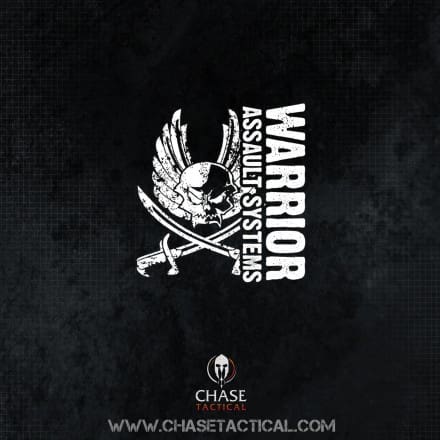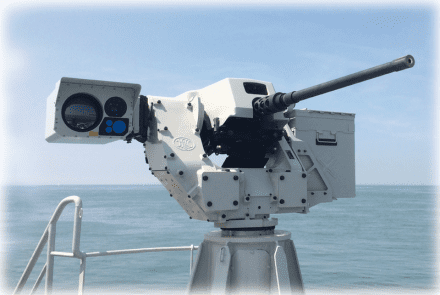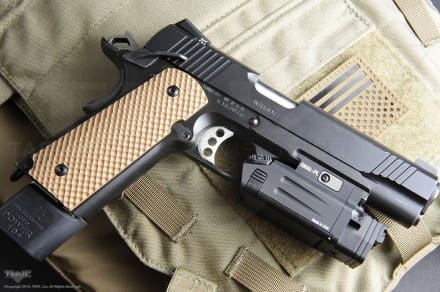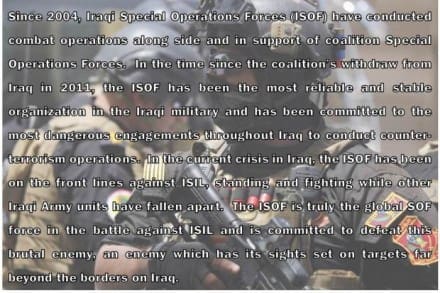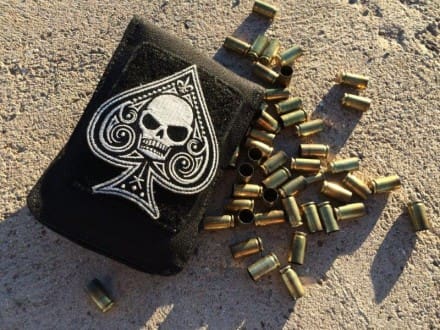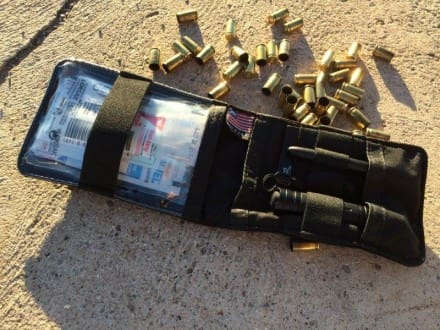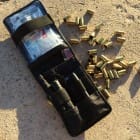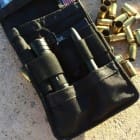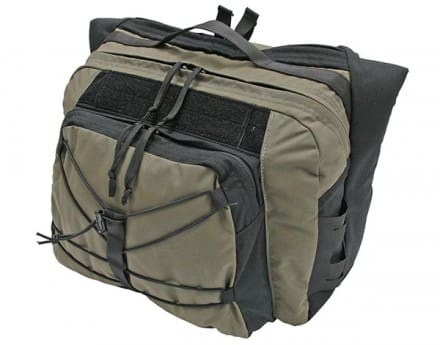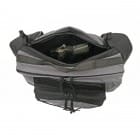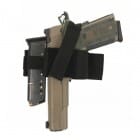I recently started to re-incorporate ‘Calling Your Shot’ drills into my Basic Rifle Marksmanship (BRM) curriculum.
Knowing where the sites are when the hammer falls is not only good marksmanship training but a liability concern and a tactical necessity. We must know whether the shot is good or not, before the rounds impacts the target.
One should perform this drill at a distance where he cannot see the impact of the round register on the paper target. So,…50-100 yards.
One should also reduce the amount of stability in one’s shooting platform to increase his wobble area. There for, prone position is out. Use an alternate position like sitting, kneeling or standing.
Use a marksmanship data book or a simple notebook with your target drawn in it. Fire five rounds. After each round, annotate on your drawn target where you believe that round hit your target.
After the five round group, compare your note pad to your target. Your notes and target do not have to be an exact match. For example; if you called two high, two low and one left, and if your target’s feedback mirrors your notes, you have succeeded in this drill.
Patrick McNamara
SGM, US Army (Ret)
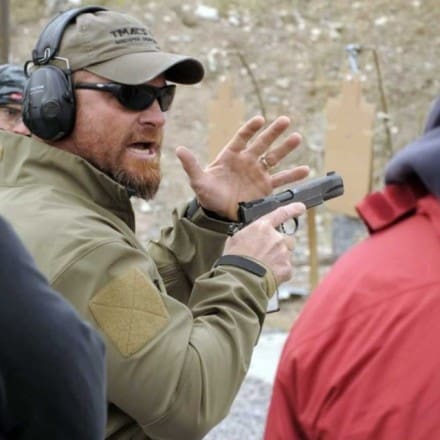
Patrick McNamara spent twenty-two years in the United States Army in a myriad of special operations units. When he worked in the premier Special Missions Unit, he became an impeccable marksman, shooting with accurate, lethal results and tactical effectiveness. McNamara has trained tactical applications of shooting to people of all levels of marksmanship, from varsity level soldiers, and police officers who work the streets to civilians with little to no time behind the trigger.
His military experience quickly taught him that there is more to tactical marksmanship than merely squeezing the trigger. Utilizing his years of experience, McNamara developed a training methodology that is safe, effective and combat relevant and encourages a continuous thought process. This methodology teaches how to maintain safety at all times and choose targets that force accountability, as well as provides courses covering several categories, including individual, collective, on line and standards.
While serving as his Unit’s Marksmanship NCO, he developed his own marksmanship club with NRA, CMP, and USPSA affiliations. Mac ran monthly IPSC matches and ran semi annual military marksmanship championships to encourage marksmanship fundamentals and competitiveness throughout the Army.
He retired from the Army’s premier hostage rescue unit as a Sergeant Major and is the author of T.A.P.S. (Tactical Application of Practical Shooting). He also served as the Principle of TMACS Inc.
Gunfighter Moment is a weekly feature brought to you by Alias Training & Security Services. Each week Alias brings us a different Trainer and in turn they offer some words of wisdom.


